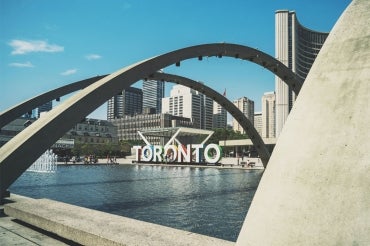'The power of place': U of T president on why leveraging the university’s location is so important

Published: September 24, 2018
In our technological age, it has become much easier to feel connected to people and places around the world, making geography seem much less significant than it once was. This global interconnectedness has led to the rise of online learning technologies, which are seen by some as a threat to the bricks-and-mortar education system.
But in an op-ed in Times Higher Education, University of Toronto President Meric Gertler argues that while the world seems “borderless,” the importance of “place” matters now more than ever, especially to academic institutions.
“Universities around the world are beginning to realise the power of place in helping them to advance their core mission of teaching and research,” he writes.
At U of T, this has meant leveraging the strengths of the cities in which the university is located – Toronto and Mississauga – to attract highly talented faculty and the best students, he says.
U of T also strengthened its partnerships with municipal government and community groups while providing a platform for more than 220 urban-focused researchers to expand the reach of their work by establishing the School of Cities.
“Such opportunities serve multiple objectives,” President Gertler says. “They provide our students with valuable, hands-on learning-by-doing. They unleash a formidable wave of talented, energetic students to work with public sector and community-based clients, helping them to address urgent challenges and leverage new opportunities.”
Online learning complements the in-class and in-person experience, he says. It has “compelled us to identify new and more innovative ways to enrich our students’ experience by engaging with real issues and real partners in real communities.”



